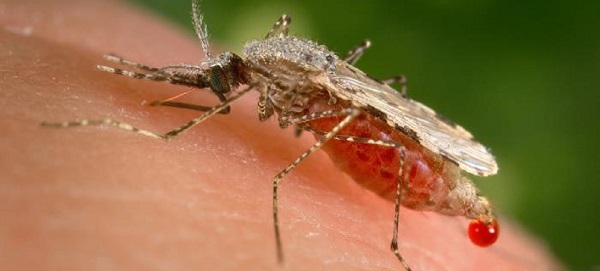
The Federal Government of Nigeria has revealed a set of initiatives to hasten the eradication of malaria in the country.
Led by key figures like the Minister of Health and Social Welfare and stakeholders in the health sector, these initiatives mark a significant step in Nigeria’s fight against malaria.
During a high-level dialogue on accelerating malaria elimination in Nigeria, held in Abuja, the Minister of Health and Social Welfare, Prof. Muhammad Pate made the announcement.
A high-level meeting, themed ‘Rethinking Malaria Elimination,’ organised by FMOH in partnership with The National Malaria Elimination Programme (NMEP), aimed to rally stakeholders to expedite malaria elimination efforts in Nigeria.
Pate stressed that these initiatives showcase the Federal Government’s unwavering commitment to achieving malaria elimination in Nigeria. By employing a comprehensive and multi-sectoral approach, Nigeria targets a substantial reduction in malaria burden and improved health outcomes for its populace.
The initiatives include various strategic measures:
“Enhanced vector control strategies: Strengthening existing measures like insecticide-treated bed nets (ITNs), indoor residual spraying (IRS) and larval source management (LSM) to reduce malaria transmission.
Expanded access to chemo-prevention: Intensifying efforts to broaden access to preventive measures such as seasonal malaria chemoprevention (SMC), intermittent preventive treatment in pregnancy (IPTp) and mass drug administration (MDA) among vulnerable populations.
Deployment of innovative tools and technologies: Leveraging innovative tools for enhanced malaria diagnosis, treatment and surveillance, including rapid diagnostic tests (RDTs), artemisinin-based combination therapies (ACTs) and mobile health (mHealth) solutions.
Strengthened health systems: Investing in reinforcing Nigeria’s health systems by training healthcare workers, enhancing laboratory capacity, and improving access to essential malaria interventions in urban and rural areas.
Community engagement and mobilisation: Prioritising community engagement to raise awareness on malaria prevention, promote behaviour change, and support community-led initiatives against the disease.”
Pate highlighted the collaborative efforts between Nigeria and its international partners to accelerate malaria elimination.
He emphasised the significance of deploying effective tools for malaria control, aligning with the President’s agenda to enhance health outcomes nationwide.
Pate stressed the importance of local production of malaria-related products within Nigeria for sustainable and affordable supply, empowering local manufacturers in malaria control efforts.
Additionally, he underscored the role of community involvement and leadership in combatting malaria, recognising Nigerian leaders across various sectors for their pivotal roles.
As Nigeria remains committed to malaria eradication, the regional director for Africa at the World Health Organisation (WHO), Dr. Matshidiso Moeti emphasised the vital role of collaboration and support from international partners, civil society organizations, and the private sector in achieving a malaria-free Nigeria.
Moeti highlighted the importance of reliable data in fighting malaria, emphasising its critical role in decision-making and intervention strategies.
She emphasised the collective responsibility of all stakeholders in easing the burden on governments, stressing transparency and accountability in malaria control efforts.
Moeti expressed confidence that with strong leadership and commitment, malaria eradication is achievable, with WHO committed to supporting countries in bolstering measures to end malaria.
The Minister of State for Health, Dr. Tunji Alausa highlighted the need for a multi-faceted approach involving collaboration across various government sectors to eliminate malaria.
Alausa emphasised the significance of utilising data and research in the process, citing available evidence for strategy development in malaria elimination efforts.
Acknowledging the ambitious agenda, Alausa expressed confidence in Nigeria’s ability to achieve it, citing similar successful efforts in other countries.
He noted the commitment of the President and the Ministry of Agriculture to drive comprehensive healthcare delivery, thanking the President for fostering an enabling environment for this endeavour.
CEO of Roll Back Malaria, Dr. Michael Adekunle stressed the importance of partnerships to expedite malaria elimination in Nigeria.
Adekunle emphasised the need for a multi-sectoral approach to translate discussions into actionable steps, advocating for government integration, climate considerations and improved planning for pandemic preparedness.
He underlined the significance of innovation and proactive planning, highlighting the potential of domestic manufacturing opportunities and ongoing community engagement in malaria elimination efforts.

